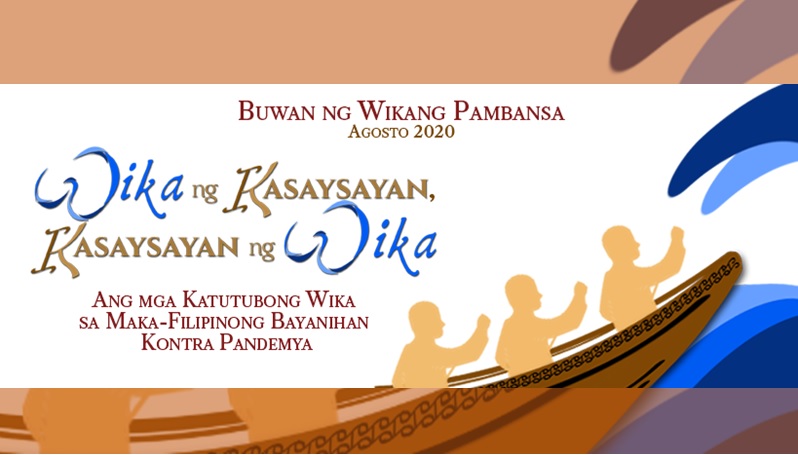
The month of August is celebrated by Filipinos around the world as National Language Week [Buwan ng Wika]. Despite the restrictions brought about by the pandemic, it is heartwarming that we have activities in the Filipino-Australian community still happening albeit via online streaming. Through these activities, the knowledge and use of Filipino, our national language are propagated, celebrated and maintained.
An example of the National Language events for the community is the Bigkas Serye which is an online reading of stories in Filipino every Friday at 6pm during the month of August as undertaken by the Philippine Consulate General in Sydney. The other initiative was Balagtasan 2020 conducted by the Tagalog Association of Australia on August 17, 2020.
For The Australian Filipina's offering for the National Language Month, we have a three part sharing. The first part is an overview of the process on Filipino being approved and continuing to be among the HSC exam subjects in New South Wales. This is followed by featuring one of the "pioneers" involved in the process, who is a very good high school friend, Erlinda [Linda] Gillies [nee Escoban]. The last part is the comprehensive information provided by Linda. There's no better way than getting information first hand!
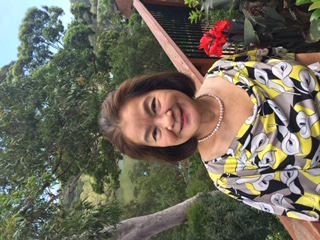
OVERVIEW OF COMMUNITY INVOLVEMENT
On the question of community involvement in having Filipino as part of HSC exam, Linda shared:
I don’t really know much about how the groups went about the lobbying process, except that it was a stroke of good fortune that John Aquilina was the then Minister of Education. Aquilina was a popular figure among Filipinos in Blacktown, which was in his electorate. With a Maltese background, he valued the learning of another language in addition to English.
I know that Linda Swords, Jess Diaz, Dr Pat Ceballos (RIP) at that time (in the 90s) were actively part of the Filipino community in western Sydney, in the Blacktown area, and they would surely have been part of the lobby groups. There would also have been many other leaders and members of Filipino community groups in Sydney who contributed their time and effort in this endeavour.
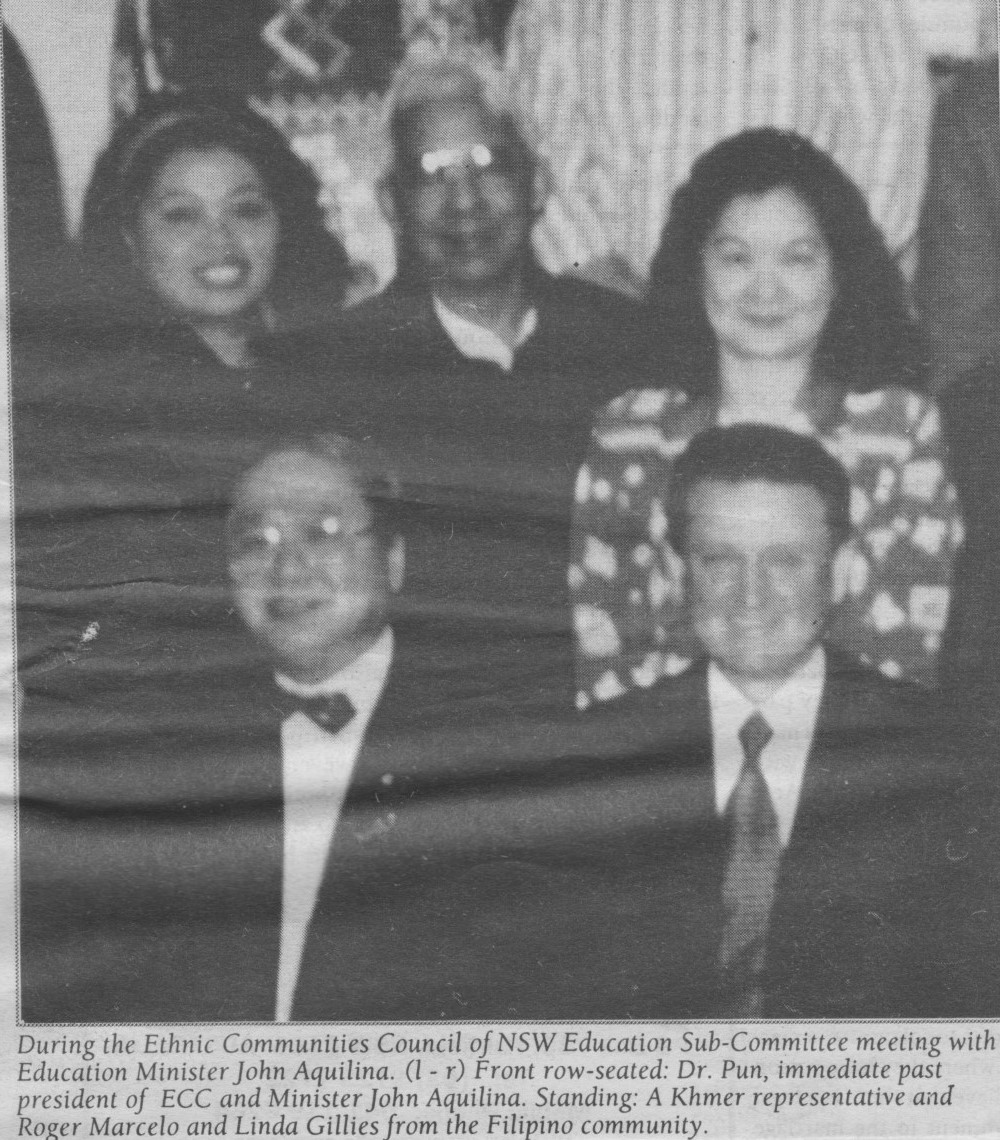
I was involved with the development and implementation of the syllabus, so more on the teaching aspect of the course. After the course was given approval, the next step was to make it a reality: ‘how’ and ‘where’is it to be taught?
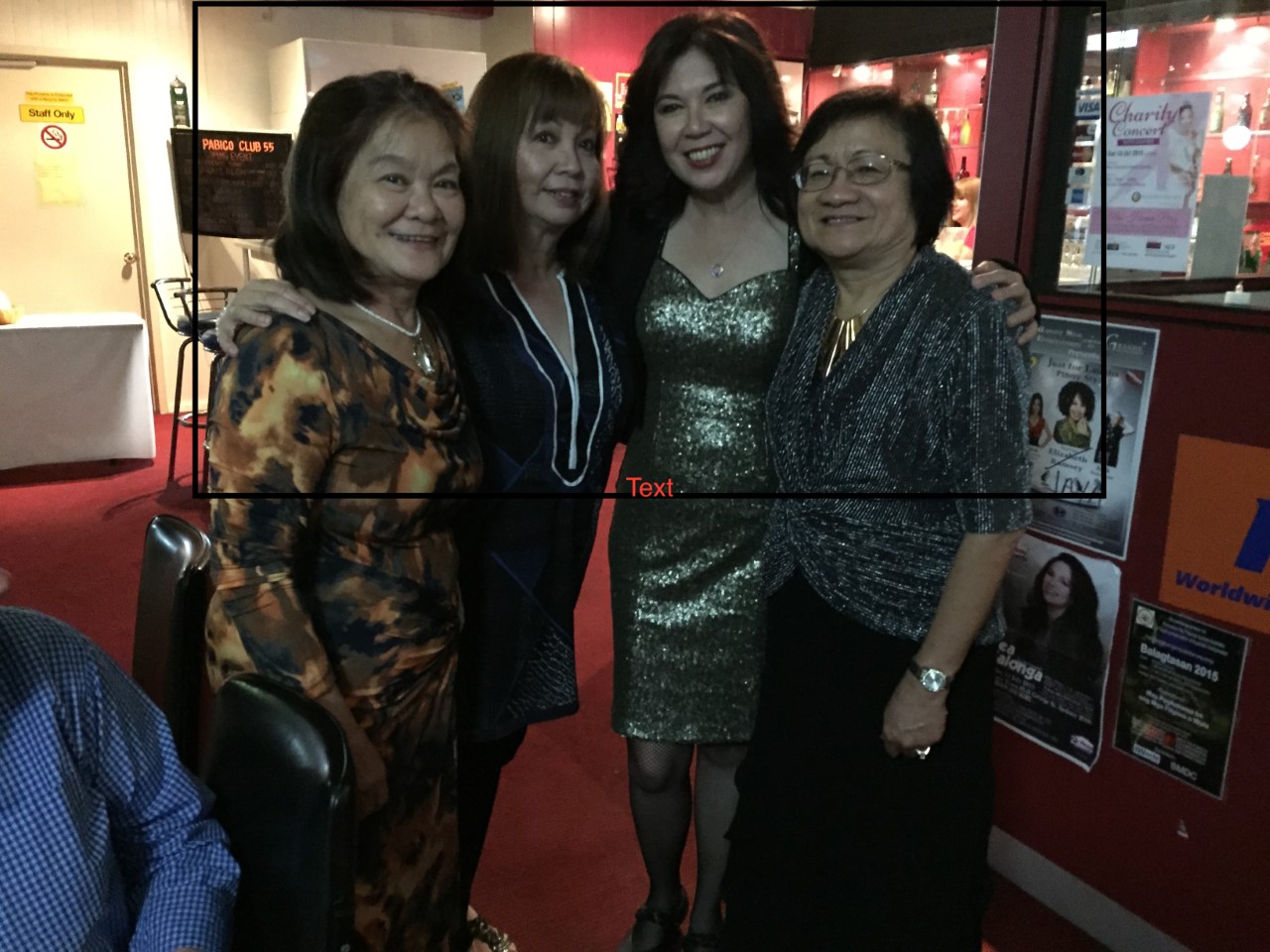 [Past Committee: Linda Gillies, Rikki Farnworth,
[Past Committee: Linda Gillies, Rikki Farnworth,
Maria Martinez, Zeny Palomo]
At the time, I was in the Education network of the Ethnic Affairs Commission. I wrote a letter of petition, with Roger Marcelo as a co-signatory, to Tom Campbell, the then Head of the NSW Saturday School of Community Languages to request the inclusion of Filipino in one of the SSCL centres. Fortunately, we succeeded in securing its inclusion in the languages offered at the Bankstown SSCL.
ABOUT ERLINDA GILLIES
Erlinda Gillies of Bonnet Bay in Sydney's southern suburb, is a high school teacher in Sydney. After graduating as Valedictorian at the Philippine College of Commerce High School, in Manila she obtained a bachelor’s degree in Education at the University of the Philippines and a Master of Education at the University of Sydney.

She was part of the group of teachers and educators who developed the Filipino Syllabus, and has worked at the NSW Board of Studies (now known as NESA: NSW Education Standards Authority) in setting the examination paper.
Linda's husband Peter is a retired Professor of Business Law at Macquarie University. They are blessed with three children - Marissa, a graphic designer with the RSPCA; Andrew, a strategic transport planner with Willoughby Council; and David, an investment banker in the London office of Macquarie Bank.
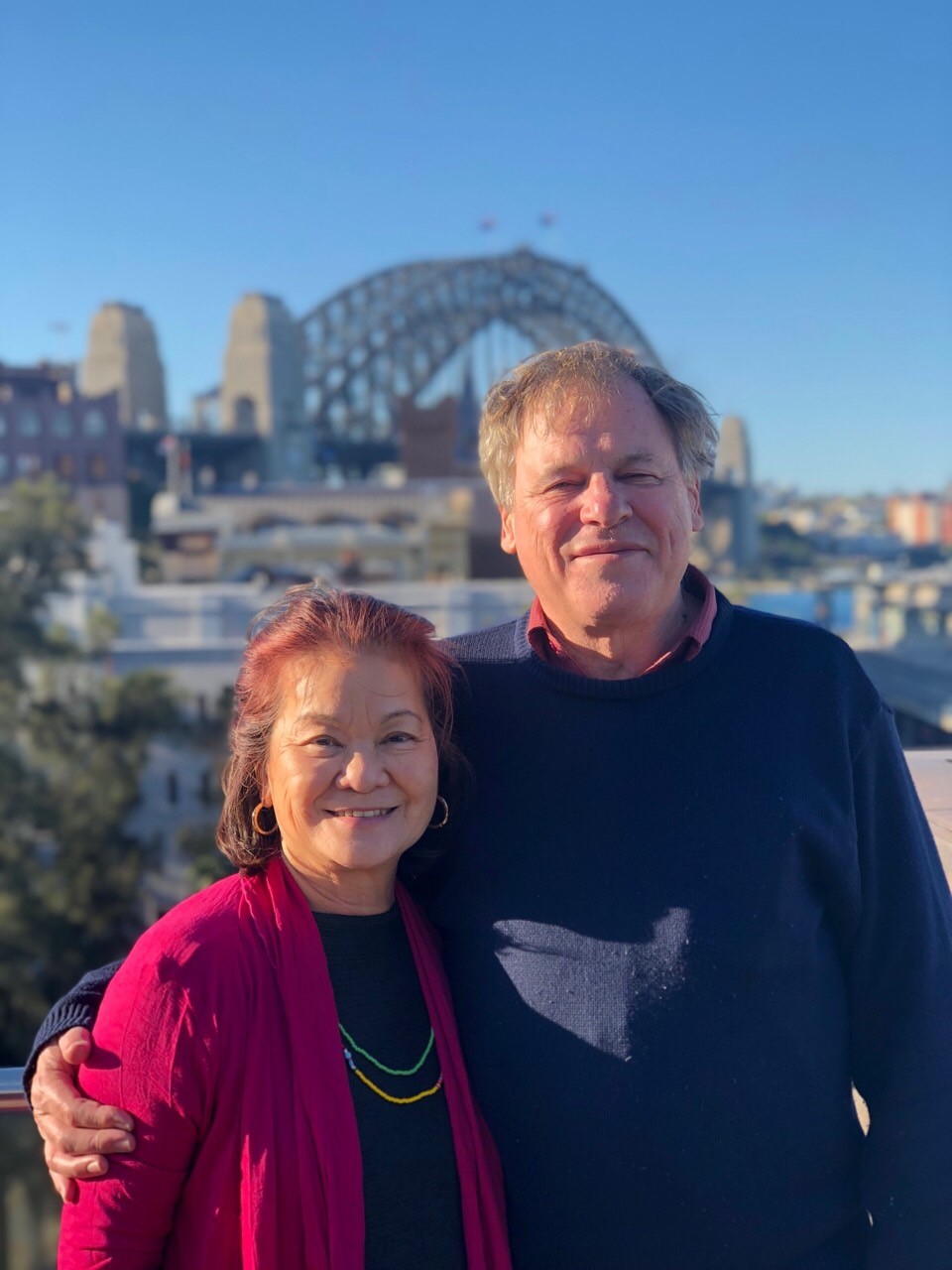
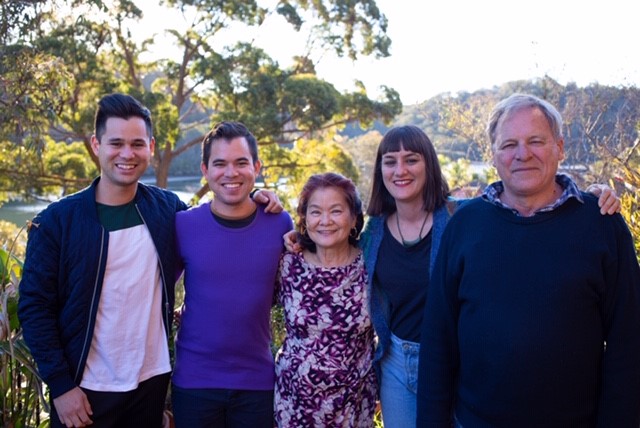
She is the younger of two daughters of Marta from Manila and Fred Escoban originally from Negros Occidental, who are now both deceased. Her only sibling Alma worked in banking, first with the CBA and then with Westpac until her retirement.
To gain an insight into Linda, we asked her a few questions and we are glad to share her responses below.
Where did you work before migrating to Australia and in Australia up to the current time ?
I taught Literature and Composition at Polytechnic University of the Philippines High School in Santa Mesa, Manila.
In Australia, I have worked mainly in teaching with the NSW Department of Education but had a 6-year break to work as Literacy Assessment Project Officer with Educational Assessment Australia, an education assessment centre within UNSW.
I worked on secondment with the NSW Board of Studies (now NESA) in Test Development, on the Filipino examination committee, as member and subsequently as chief examiner.
I taught on a permanent basis at various schools through my 40+y-career: Wiley Park Girls’ High School, Caringbah High School, Kogarah High School and currently on a part-time basis at The Jannali High School. My subject areas are English, Remedial Literacy Education, and currently English as an Additional Language (EALD), formerly titled English as a Second Language (ESL).
What are your interests outside of the classroom?
I attend St Joseph’s Catholic Church, Como, and support the parish in its education and pastoral ministries. I am a catechist at two local primary schools, and the parish coordinator of home visits to bring the Eucharist to our homebound and sick parishioners.
Reading is my most relaxing pastime. I also enjoy going to the movies, and travel…although on hold at the moment :(
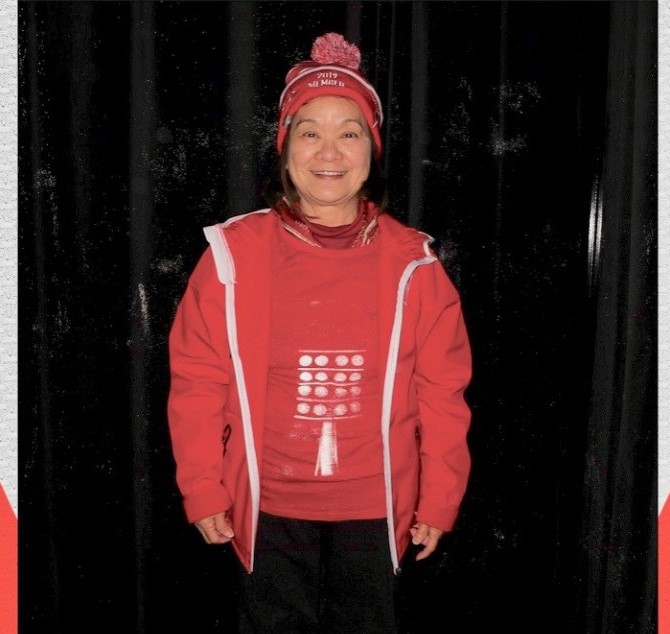
I also enjoy going to Swans games with the family.
What would you consider fondly to be your achievements?
On a personal level, being able to bring my immediate family to Australia, and then being blessed with a kind and loving family in Peter and our 3 kids.
On a professional level, having the opportunity to pursue a career in education: at classroom level, as an English teacher; and in educational testing and measurement, as a writer and developer of large-scale literacy assessments for schools, when I worked at Educational Assessment Australia, within UNSW Global.
What challenges have you faced and overcome?
Coming from a different culture and educational system, I faced the challenge of walking into an Australian high school class as an English teacher.
I was confident in my knowledge of the subject content, but I was uncertain in more ways than one on dealing with the reality of Australian teenagers ‘testing’ their new Asian English teacher.
However, although I have recounted that difficult start to my teaching career in Australia many times, I must acknowledge the wonderful teachers I have worked with who provided me with the support and guidance that has steadied me, so much so that here I am, still teaching four decades since that almost traumatic start.
What else do you wish to accomplish in life?
I can say in all honesty and with humility that there is nothing more I wish for myself. Like all parents, I hope that my kids will be blessed with the same good life I’ve had.
What do you enjoy most in teaching over the years?
A teacher’s reward is to see students learn and progress in their education and in their adult life. I have met many ex-students who are now in leadership positions in various professional fields. And they still remember their Filipino English teacher, Miss Esky (my surname fondly shortened, as Aussie kids do).
On the flip side, what are the difficulties or disappointments you personally experienced in being a teacher?
Modesty aside, apart from that challenging start to teaching, I have had only positive experiences in my teaching career. My Australian colleagues have all been friendly, supportive, professional.
What is your definition of "success"?
Feeling positive and grateful within yourself and fulfilled in your career
ABOUT FILIPINO (TAGALOG): A HIGH SCHOOL SUBJECT IN AUSTRALIA [by Linda Gillies]
The Australian Curriculum: Languages
The Australian school curriculum provides students with the opportunities to study a language in addition to English from primary through to the senior secondary years.
The national model for the teaching, learning and assessment of languages has been developed by the Collaborative Curriculum and Assessment Framework for Languages (CCAFL).This allowed for collaborative syllabus development and formal assessment of small-candidature languages at senior secondary level. The aim is to ensure that a significant number of students are able to present their particular language for formal study and assessment at Year 12 level.Filipino (Tagalog) is one of the languages within the CCAFL category.
The CCAFL Filipino syllabus for senior secondary school was developed by the NSW Education Standards Authority (NESA), which also sets and marks the national public examination for the subject. NESA was formerly known as the NSW Board of Studies.
In Term 4 1995, the then NSW Minister for Education and Training, John Aquilina, announced the approval of Filipino as the 38th community language other than English to be included in the NSW high school curriculum. The Minister’s approval was the successful culmination of combined lobbying among Philippine community groups in Sydney.
The first NSW Higher School Certificate (HSC) examination in Filipino was on 27th October 1998. Since then, Filipino has continued to be offered as a subject at senior secondary level, not only in NSW but also in other states and territories.
Pathways to Studying Filipino
The states and territories have their own education departments and accreditation authorities which oversee the implementation of the Australian curriculum. Students who are interested in studying Filipino should talk to their school principal as their first point of contact.
In NSW, students have two options to study Filipino if it is not offered in their weekday school.
- Saturday School of Community Languages
The Saturday School of Community Languages (SSCL) is a NSW Department of Education program, operating in centres located at 14 high school sites.
SSCL offers 26 language courses on Saturdays to students from Year 7 to Year 12, from public and non-government secondary schools and TAFE. Students are eligible to enrol at the school to study their background community language when it is not available at their weekday school.
Filipino is taught in the SSCL Centre in Bankstown Girls’ High School, Mona Street, Bankstown.
Students at SSCL follow the NSW Education Standards Authority (NESA) syllabuses. Language study at the SSCL is included as part of a student’s Record of School Achievement (RoSA) and Higher School Certificate (HSC). There are no fees associated with enrolling at SSCL.
SSCL contact details:
105 Phillip Street
Parramatta NSW 2150 Telephone 02 7814 2115
Email [email protected]
- Outside Tutor Scheme
The NSW Community Languages Schools Program is managed by the Department of Education's School Operations and Performance.
The department helps school students learn and use their own community language - and learn more about their culture - through the NSW Community Languages Schools Program.
Community languages schools also help students who are preparing for the Higher School Certificate through the Outside Tutor Scheme and students who are learning a new language for the first time.
Contact details:
Level 11 105 Phillip St, Parramatta NSW 2150
https://education.nsw.gov.au/
Home>Public schools>Community languages schools>Filipino language schools
Filipino Syllabus Content
The Filipino Continuers Syllabus is designed for students who are background speakers of Filipino. It aims to develop the skills of listening, speaking, reading, and writing in Filipino, and to enable students to move between Filipino and English. The approach to language learning is thematic and communicative, which differs from the literature-based and in-depth linguistic approach to the study of Filipino in Philippine schools.
There are three prescribed themes:
- the individual
- the Filipino-speaking communities
- the changing world.
Each theme has a number of prescribed topics and suggested sub-topics.
The theme ‘The Individual’ enables the student to explore aspects of their personal world; for example, sense of self, aspirations, personal values, opinions, ideas, and relationships with others. This theme also enables the student to study topics from the perspective of other individuals.
The theme ‘The Filipino-speaking communities’ explores topics from the perspective of groups within those communities or the communities as a whole, and encourages the student to reflect on their own culture and other cultures.
The theme ‘The changing world’ enables the student to explore change as it affects aspects of the world of work and other topics; for example, social issues and tourism.
There is a requirement to undertake one in-depth study in the HSC course. The in-depth study has been designed to enable the student to extend their understanding of an aspect or aspects of one of the topics or sub-topics.
The texts chosen to support the in-depth study will depend upon the availability of appropriate resources. Texts could include, for example, film, newspaper article, documentary, short story, song, or oral history, either in their original form, or adapted. The in-depth study texts may involve some reference to text in English, such as sub-titled films, or supporting articles and/or information. However, the student will be expected to present and discuss the in-depth study in Filipino.
Text types for receptive use in teaching, learning and assessment are not prescribed. Students are encouraged to read, view and listen to a wide range of texts, including authentic texts.
In the external examination, the following text types are prescribed for productive use:
- article
- report
- blog
- review
- diary/journal entry
- script of a play
- email
- script of a speech or talk
- letter (formal/informal)
- story
- message
- note
- text of an interview
Although there is no prescribed vocabulary list, the student should be familiar with a range of vocabulary relevant to the topics prescribed in the syllabus.
For details of the syllabus, follow this menu list in the NESA website:
NESA home > Year 11 – Year 12 > Learning areas > Languages > Continuers courses > Filipino Continuers
HSC Assessment and Examination
The HSC external examination consists of an oral examination and a written examination.
The oral examination has two sections: Conversation and Discussion. The Conversation is between the student and the examiner: it is a general conversation about the student’s personal world, for example, family, friends, interests, aspirations. In the Discussion, the student presents the subject of the in-depth study undertaken.
The written examination has 3 sections: Listening and Responding, Reading and Responding and Writing in Filipino. Questions are phrased in Filipino and English. Each section has specific instructions regarding the language (Filipino or English) to be used in the response.
Past examination papers are available on the NESA website, as well as marking guidelines and performance band descriptors. The NESA website provides comprehensive information for parents and prospective students on the assessment requirements of the course.
~~~~~~~~~~~~~~~~~~~~~~~~~~~~~~~~~~~~~~~~~~~~~~~~~~
Ano pa hinihintay ninyo? Enrol na kayo sa Filipino subject para sa inyong Year 12 Certificate.